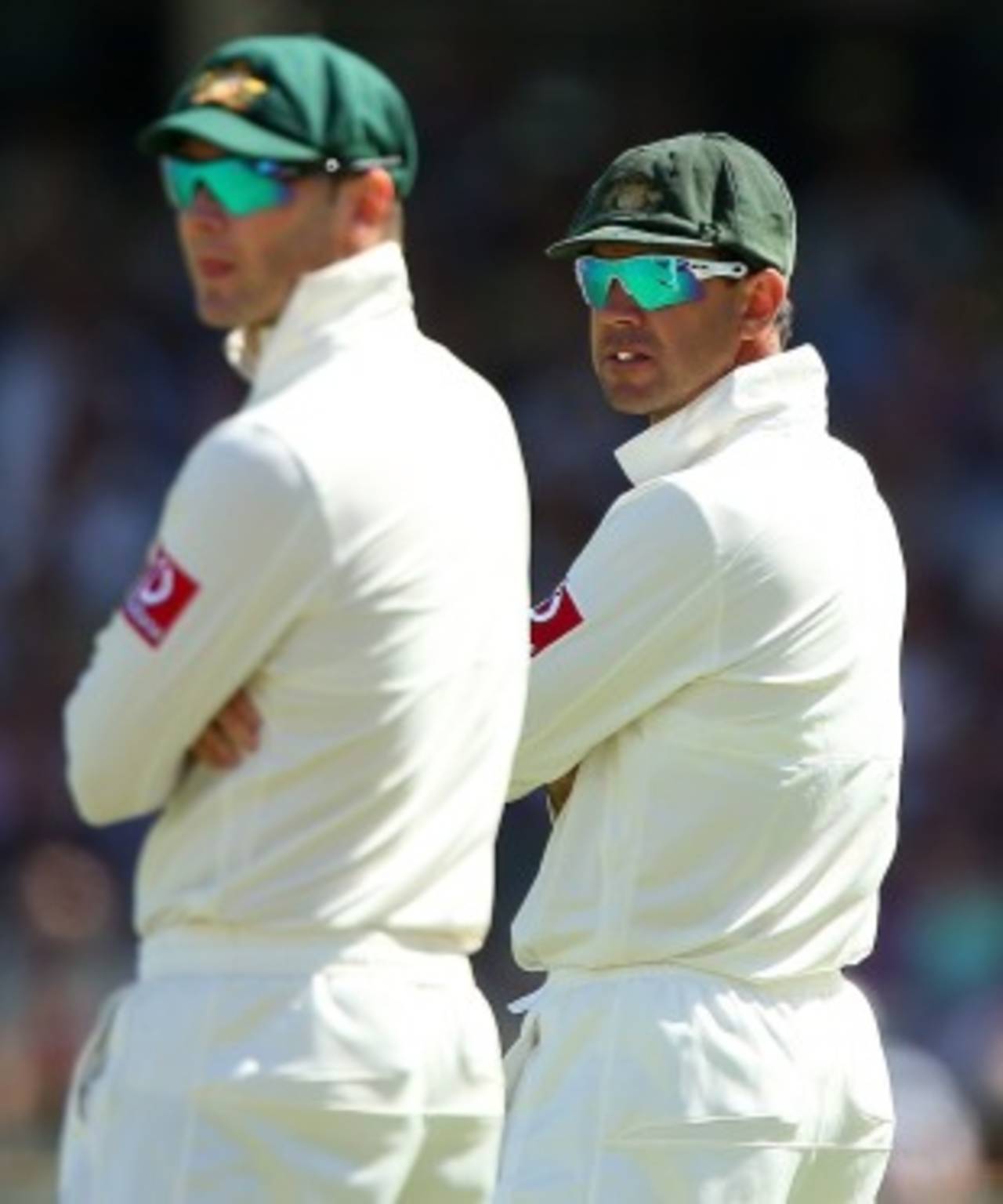Michael Clarke is widely regarded as Australia's finest captain since Mark Taylor. If he can lead his men to a series win in India the last three words of that sentence might become superfluous. In the modern era, only Ashes triumphs have ranked as highly for Australian Test teams as the fabled series win in India, a goal that has eluded a long list of captains including Taylor, Steve Waugh, Ricky Ponting, Allan Border and Kim Hughes.
In the past 43 years, only a team of champions steered by Adam Gilchrist in 2004 has enjoyed such a success. At his disposal, Gilchrist had Matthew Hayden, Justin Langer, Damien Martyn, Darren Lehmann, Simon Katich, Glenn McGrath, Jason Gillespie, Michael Kasprowicz, Shane Warne, and a young Clarke. Now in charge, Clarke must do the job this year with resources that by comparison appear as thin as Ishant Sharma.
It is not that his squad is weak, just lacking in experience. Only four members of the squad have played Test cricket in India and one of those, Mitchell Johnson, was not even picked for the first Test in Chennai. Ricky Ponting and Michael Hussey are gone, permanently. Ponting was the last remaining link to the 2004 team that served as Clarke's welcoming party to Test cricket. It is no coincidence that since Ponting's retirement late last year, Clarke has often found himself emotional and reflective.
As he prepared for the Chennai Test on the eve of the match, Clarke was out in the middle of the MA Chidambaram Stadium, standing in batting mode on the pitch, practicing his shots, visualising his innings. He would have seen Hayden go through the same motions at the same venue in 2004, for it was a classic habit of the opener. But whereas Hayden was only part of a powerful and experienced top seven, Clarke will need shoulders the size of Hayden's to carry Australia in this series.
It is not a dissimilar situation to the one Border found himself in during the 1986 tour. Although Border was not the player of spin that Clarke is, he entered the series as the talisman of a side that was about to unearth a few jewels. The first Test in Madras was Border's 82nd and the Australian XI combined had only 192 matches of Test experience.
This Chennai Test will be Clarke's 90th; his team in total has played 254. Sunil Gavaskar and Kapil Dev between them had played more Tests than the entire Australian team in Madras in 1986. This time around the same can be said of Sachin Tendulkar and Harbhajan Singh, or Tendulkar and Virender Sehwag, or Tendulkar and MS Dhoni, such is the experience throughout the India outfit.
"That's where the team's at now," Clarke said in Chennai on the eve of the first Test. "I guess that was probably why I was a little bit emotional during the Australian summer when Ricky Ponting retired, when Michael Hussey retired, speaking at the Allan Border Medal. All the players I grew up with, watching and then playing with at the start of my career, that generation of players is gone.
"So that's been quite hard to see, that transition, that change. But on the other side I'm really excited about that because now we have the opportunity as a young team to create our own destiny, build our own legacy. There would be nothing more satisfying than [a new era of success]. Who knows, we might never be the team that wins 16 Test matches in a row, but we might be as well. It's going to take time. It's going to take a lot of hard work."
Border's team managed a drawn series in 1986 and such a result would certainly be a pass mark for Clarke's 2013 squad, given that nine of the touring party have played fewer than ten Tests. It is rare for an Australian Test side to have such low expectations entering a series, but the changing nature of the team combined with Australia's historically poor record in India means that nobody really expects Clarke's team to triumph.
Win and they will be hailed as heroes; lose and, well, that was to be expected. Not that abject team failures and extended slumps from individuals will be allowed to pass unnoticed. England's success in the Test series in India late last year showed that MS Dhoni's men can be beaten at home, and also set the bar high ahead of the upcoming Ashes contest this year. But England may also have done Australia a favour by increasing the pressure on India.
"They lost their last series so that's the reason the Indian media have built this series up so much. For me I haven't looked too much into it," Clarke said. "I'm not that bothered about what's happened in regards to the Indian series against England. I watched a fair bit of it ... but we're a different team to England. Our strengths are different. We play a different brand of cricket."
A big part of that brand is based around Clarke's positive captaincy, always searching for a way to win. It looks good when it works. But Clarke will face a delicate balancing act between attacking an under-pressure India and halting their momentum when it starts to flow, as it surely will. And all of this with a team that is still finding its way. One way or another, the next five weeks will be a steep learning curve.
Brydon Coverdale is an assistant editor at ESPNcricinfo. He tweets here
